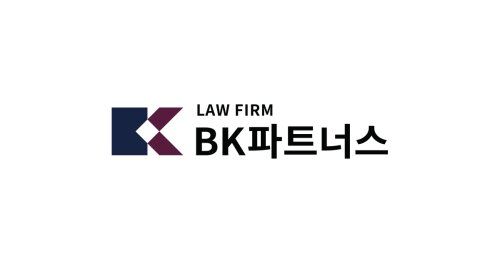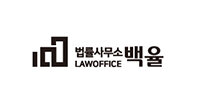Best Faith-Based Law Lawyers in Seo-gu
Share your needs with us, get contacted by law firms.
Free. Takes 2 min.
List of the best lawyers in Seo-gu, South Korea
About Faith-Based Law in Seo-gu, South Korea
Faith-Based Law refers to the intersection of law and religious beliefs, doctrines, or institutions. In South Korea, including Seo-gu, the legal system operates primarily on secular, civil, and criminal laws enforced by the government. However, issues involving churches, temples, mosques, and other religious entities often require legal interpretation in contexts such as property, employment, nonprofit operation, taxation, religious freedom, and dispute resolution. Faith-Based Law in Seo-gu incorporates both national legal frameworks and the unique needs of the diverse religious community found in the district.
Why You May Need a Lawyer
There are several reasons why you might need legal assistance related to Faith-Based Law in Seo-gu. Common scenarios include:
- Establishing or registering a religious organization or nonprofit entity
- Resolving leadership or management disputes within a religious body
- Dealing with property transactions for religious buildings or lands
- Ensuring compliance with local and national regulations for religious gatherings or activities
- Handling employment issues involving religious staff, clergy, or volunteers
- Navigating issues of religious freedom and discrimination
- Managing charitable donations and tax exemption status
- Protecting intellectual property, such as names, logos, or publications, for religious organizations
- Defending or asserting rights in situations involving public protests, defamation, or media coverage of faith-based organizations
Local Laws Overview
In Seo-gu, Faith-Based Law is influenced by several key legal areas:
- Constitutional Guarantees: South Korea’s Constitution affirms freedom of religion and prohibits discrimination based on faith.
- Nonprofit and Religious Organization Law: Registration, establishment, and operation of religious institutions must comply with nonprofit laws, including reporting of activities and finances to authorities.
- Taxation: Religious organizations often qualify for tax exemptions, but they must adhere to procedures and reporting rules to maintain this status.
- Employment Law: Religious workers and staff have rights and obligations, including contracts, workplace safety, and labor protections.
- Property Law: Ownership, leasing, and use of religious properties require careful legal compliance, especially regarding zoning and public safety regulations.
- Public Assembly and Safety Regulations: Large gatherings or public events must observe local safety rules and gain necessary permits.
- Defamation and Media Law: Faith-based groups are protected from slander or false accusations, but must also ensure their statements in public and media comply with defamation laws.
Frequently Asked Questions
What legal rights do religious organizations have in Seo-gu?
Religious organizations in Seo-gu have the right to freely operate, conduct services, and manage internal affairs, provided they comply with national laws, including registration, taxation, and property regulations.
Does my religious organization need to register with the government?
Registration is required for religious organizations mainly to obtain legal recognition, tax-exempt status, and the right to own property or open bank accounts. Some small organizations operate informally, but formal registration provides significant legal benefits.
Are religious organizations in Seo-gu automatically tax-exempt?
No, organizations must apply for tax exemption and meet specific requirements, including maintaining accurate records and submitting required reports to authorities.
Can a religious organization own property in Seo-gu?
Yes. Registered religious organizations can acquire and own property, but must comply with all national and local property laws, including zoning and safety codes.
What employment laws apply to clergy or church staff?
Clergy and staff are covered by some provisions of Korea’s Labor Standards Act, though some religious roles have specific exceptions due to their unique nature. Employment contracts are highly recommended.
How can internal disputes in a religious body be resolved?
Many organizations have internal procedures for dispute resolution. However, if needed, courts or alternative dispute resolution services can handle leadership, property, or doctrinal disagreements.
Can a faith-based organization publicly express beliefs that are unpopular or controversial?
Yes, but freedom of expression has limits set by defamation, anti-discrimination, and public safety laws. Legal counsel can help ensure statements do not violate legal boundaries.
How do regulations affect large public religious events?
Organizations must obtain permits for large gatherings and meet venue, health, and safety regulations. Advance planning with local authorities is necessary to avoid legal problems.
What should we do if we face discrimination based on religion?
Victims of religious discrimination can seek legal redress under Korea’s anti-discrimination laws. Lawyers or human rights organizations can assist in filing complaints or lawsuits.
How do I protect the name, logo, or materials of my religious organization?
Intellectual property laws protect names, logos, and copyrighted materials. Registration of trademarks or copyrights is recommended for legal protection and enforcement.
Additional Resources
If you require more information or support related to Faith-Based Law in Seo-gu, consider these resources:
- Seo-gu Office: For information on permits, property issues, and local regulations affecting religious organizations.
- Ministry of Culture, Sports and Tourism: Oversees registration and administration of religious bodies in Korea.
- National Human Rights Commission of Korea: Assists with cases involving discrimination or religious freedom.
- Korea Legal Aid Corporation: Provides affordable legal assistance to individuals and organizations.
- Local Bar Association: Can provide referrals to attorneys experienced in Faith-Based Law matters.
Next Steps
If you need legal assistance in Faith-Based Law in Seo-gu, begin by identifying your specific legal issue and gathering related documents. Contact a qualified attorney who specializes in nonprofit, religious, or civil law. Schedule an initial consultation to discuss your case, understand your rights and obligations, and receive guidance on the best course of action. Stay informed about relevant legal updates, and consider ongoing legal counsel to ensure your organization remains compliant and protected under local and national laws.
Lawzana helps you find the best lawyers and law firms in Seo-gu through a curated and pre-screened list of qualified legal professionals. Our platform offers rankings and detailed profiles of attorneys and law firms, allowing you to compare based on practice areas, including Faith-Based Law, experience, and client feedback.
Each profile includes a description of the firm's areas of practice, client reviews, team members and partners, year of establishment, spoken languages, office locations, contact information, social media presence, and any published articles or resources. Most firms on our platform speak English and are experienced in both local and international legal matters.
Get a quote from top-rated law firms in Seo-gu, South Korea — quickly, securely, and without unnecessary hassle.
Disclaimer:
The information provided on this page is for general informational purposes only and does not constitute legal advice. While we strive to ensure the accuracy and relevance of the content, legal information may change over time, and interpretations of the law can vary. You should always consult with a qualified legal professional for advice specific to your situation.
We disclaim all liability for actions taken or not taken based on the content of this page. If you believe any information is incorrect or outdated, please contact us, and we will review and update it where appropriate.









